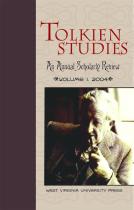The most important essay in the history of Beowulf scholarship, J.R.R. Tolkien's "Beowulf: The Monsters and the Critics" has, rightly, been much studied and discussed. But scholars of both Beowulf and Tolkien have to this point unaware that Tolkien's essay was a redaction of a much longer and more substantial work, Beowulf and the Critics, which Tolkien wrote in the 1930's and probably delivered as a series of Oxford lectures.
This critical edition of Beowulf and Critics presents both unpublished versions of Tolkien's lecture ('A' and 'B'), each substantially different from the other and from the final, published essay. The edition includes a description of the manuscript, complete textual and explanatory notes, and a detailed critical introduction that explains the place of Tolkien's Anglo-Saxon scholarship both in the history of Beowulf scholarship and in literary history.
In Beowulf and the Critics Tolkien's complex and convoluted argument is made more straightforwardly than it is in the published essay. Many of the veiled literary references and allegorical allusions of "The Monsters and the Critics" are here spelled out, and Tolkien also provides a capsule history of Beowulf-criticism from the re-discovery of the poem until the '30's. Readers can see what Tolkien really thought about previous Beowulf critics but was too circumspect to publish, and they can also follow the development of Tolkien's thought about Beowulf from rather inchoate impressions to the logical and rhetorical brilliance of the published lecture.
Beowulf and the Critics is of interest not only to Anglo-Saxonists, but to scholars of Tolkien's work and general readers. Those interested in Tolkien's fictional works will find intriguing hints about Tolkien's method of composition and see how even before (or immediately after) the composition of The Hobbit Tolkien was using his fiction and poetry in his scholarship and his scholarship in his fiction and poetry.
Beowulf and the Critics includes a version of Tolkien's poem on a dragon hoard ("Iśmonna Gold Galdre Bewunden") and a copy of a C.S. Lewis poem about a dragon The many layers of writing and revision which are documented in the textual notes provide a window into Tolkien's method of composition, which includes many intriguing false starts and changes of direction. The explanatory notes collect together all the sources Tolkien used for his work and detail the influences that shaped his critical understanding.
Beowulf and the Critics is therefore valuable not only in its intrinsic sense as part of literary history, but also as an illustration of the development of the thought of one of the most influential authors and scholars of the twentieth century.
Other Books by the Author
![]()
